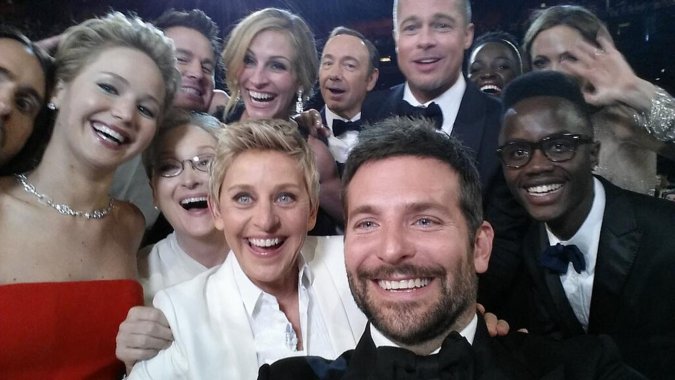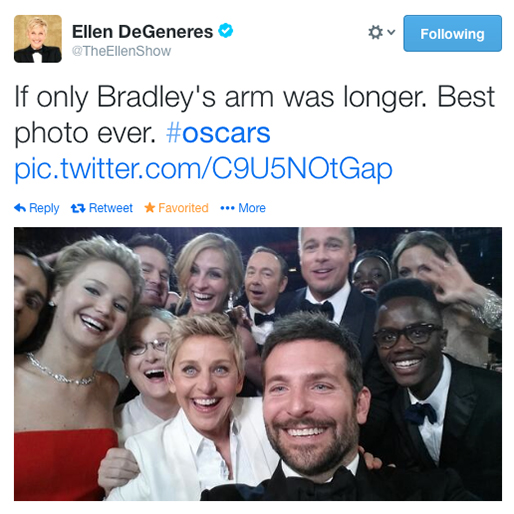As we say goodbye to 2013 . . . .
For those of you who are loyal readers and followers of Legal Bytes, you know this is the time of year when I break tradition and write a non-legal, more personal and philosophical post for Legal Bytes. I am figuring that if the ancient Babylonians, who celebrated the New Year upon seeing the first new moon after the vernal equinox, could start a tradition that lasted for about 4,000 years – the least I could do was to try to keep up. Although my tradition doesn’t date back nearly that far, this posting will contain no hypertext links to distract you; it will not have citations to provide you with reference or background information; nor will it dazzle you with factoids or intrigue you with today’s news – legal or otherwise. This is my one chance each year to philosophize and dispense my thoughts and opinions – with absolutely no credentials, qualifications or expertise to do so.
There are, however, two traditions I will continue to perpetuate even though I did not originate either one. First, let me take this the opportunity to wish each of you, your families, friends, loved ones and yes, even an enemy or two, an enchanting and joyous holiday season and a healthy, happy new year, filled with enchantment and magic, health and joy, and prosperity and success. Second, as many of you know, for numerous years I have avoided a tradition of sending out mass mailings of cards and gifts – which are often lost in the flurry of the season, and delayed by the strain on the mail and package delivery services; and while we delude ourselves into believing it "personalizes" the warmth of the season – whether displayed for a few weeks and then put in a drawer, tossed in the trash bin immediately, or relegated to a closet filled with decades of Lucite, there was nothing really personal about that process. So as many of you may already know, I decided years ago to borrow a tradition an old friend told me about and I started making a contribution to a charitable organization for all the family, friends, loved ones, colleagues and acquaintances I want to honor, in memory of those we have lost this past year, near and far, and in recognition of those who have given me a reason to celebrate – clearly far too many to list. In that spirit, as I have done for a number of years, I have made a donation to the St. Jude Children’s Research Hospital. My way – perhaps naively – of trying to help some children in need, benefit from the kindness of a stranger.
So now, won’t you please pull up a chair, put your other distractions away for just a moment, pour a glass of your favorite beverage, sit back and enjoy . . . and as always, thank you.
When I thought about this year’s "philosophical" posting, my first inclination was to offer my humble opinions about the woeful state of intellectual property law and the challenges faced with the onslaught of digital technology. I thought about data breaches and wondered if what people really care about is privacy or data protection, or rather the inability to control information about us so that we can actually get a benefit from sharing information about ourselves. After all, I don’t really care if anyone knows I like popcorn, but at least give me a discount coupon for sharing that information with someone I don’t know! So many legal challenges – but then I thought, wait, this isn’t supposed to be a "legal" posting . . .
So I remembered just recently someone told me that everyone should listen to the Michael Jackson song "Man in the Mirror" at least once every month. I thought about what that meant – really listen to the words. Coincidentally, I keep hearing the John Lennon song "Imagine" playing at surprisingly frequent intervals this time of year. It occurred to me the entire season has a genre of music dedicated to the holiday spirit and the new year. Since I promised no hypertext links, I will resist – but did you ever wonder about the universal power of music that transcends culture, ethnic background, race, religion and all the things we believe separate and segregate us. Why is it that music can have such a powerful and magical effect on us – no matter what age or part of the world we are from.
Although no one asserts that music arose or was derived from the study of mathematics, mathematics is ultimately the basis of sound, being rooted in the frequency of vibration that is audible to the human auditory senses. Tone and pitch all can be expressed as mathematical frequencies. This is hardly new – ancient Chinese and Egyptians studied the mathematical properties of sound, and one of the earliest Greek mathematicians and philosophers, Pythagoras, actually correlated the length of the string to the vibrational frequency, and even expressed musical scales in terms of numerical ratios. In Plato’s time, one of the key branches of physics was "harmony," and early studies in India and China sought to show that mathematical laws of harmonics and rhythms were fundamental to our understanding of the world, as well as to our well-being. This time of the year, my interest in music is not in its mathematical properties, but rather in its ability to bring harmony to the world – one musical composition at a time.
Every culture on the planet has folk songs, musical instruments and rhythms, whether or not they include song or dance. Indeed, we launch music into space with explanatory mathematical symbols and algorithms in the belief that if there is life out there, they will view us as friendly and harmonious because of our music, rather than because of our unmanned space craft smashing into their planet!
Consider how important music is in almost every aspect of our lives. Although there are obvious examples of music put to nefarious uses – remember the 1971 Stanley Kubrick film, "A Clockwork Orange" – in most cases, music sets the mood, captivates us, and engages us in ways both explicit and implicit. If memory serves, the only television programming since the beginning of time that doesn’t have a theme song is the news program "60 Minutes" – announced only with a ticking clock (unless you consider that music). When the theme song to our favorite program announces the beginning of the program, everyone comes running to the screen (for years I thought the words "Hi Ho Silver" were actually part of the "William Tell Overture"). Who does not remember a wide variety of jingles and catchy tunes advertising products in advertisements of all kinds – from being stuck on Band Aids, to "loving it" at McDonald’s (which replaced "you deserve a break today").
Certainly in motion pictures, music has introduced us to aliens ("Close Encounters of the Third Kind"), has been the background for our investigation of the cycle of life and birth and the mysteries of the universe (witness Strauss and Wagner in "2001: A Space Odyssey"). Who doesn’t remember the stirring music from "The Magnificent Seven" or instantly recognize the introduction to every James Bond movie. Think about all the different types of music from around the world. Type "musical genres" into Wikipedia and you will get a listing of literally hundreds of types and styles of music. Every major (and some minor) city, town and village has a musical group – marching bands, barbershop quartets, street minstrels, symphony orchestras, rock groups and school recitals. Ever wonder why?
I’m happy to send you the link (not here) but one day, take a look at the clip on YouTube of a homeless young man making the audience (and the judges) cry on "Korea’s Got Talent," or 6-year-old Connie singing "Somewhere Over the Rainbow" on "Britain’s Got Talent," and making even Simon Cowell melt. Take a peek at the clip from the Andre Rieu concert at Parkstad Stadium in the Netherlands as he introduces 3-year-old violinist Akim, or a YouTube video of Ryan, only 11 years old, playing Chopin like a master.
These are obvious musical "tear jerkers" – sympathetic or extraordinarily young people with amazing talent. But my belief is that music and its universal appeal are deeply rooted in our human DNA and that music – a universal language that has transcended and often defied borders for centuries – has the unique ability to cross artificial boundaries and barriers that far too often seem to separate us and perhaps, bring us together. We humans, all of us, love music. I have no scientific evidence, but music is important. The power of music is too ubiquitous, has been around far too long and is simply too amazing to ignore. We associate life events with music that was playing at the moment. We love concerts, and while musical groups and styles may wax and wane, the one constant is that music in one form or another continues to fill stadia, concert halls and our lives. Music can make us calm or can call us to action; it can stir us and make us smile or melancholy. Its rich contours and seemingly endless complexity can make us feel happy when we are blue, and smile, even when we are walking in the rain.
In recent days, smart mobs around the world (sometimes referred to as "flash mobs" when they gather for seemingly random and pointless activities, only to disperse as quickly as they appear), have grown increasingly popular as expressive outlets for music of all kinds – from symphonic pieces to hip hop and recreation of theatrical production numbers. While the first modern-day, non-musical "flash mob" was the invention of Bill Wasik, a senior editor at Harper’s Magazine who, in June 2003, surreptitiously arranged for more than 100 people to gather on the 9th floor of Macy’s surrounding an expensive rug – everyone was told to tell the advances sales help that they were a group shopping for a "love rug," that they made purchases as a group and that they all lived together in a warehouse just outside New York City. Imitators soon popped up, but the most recent trend has been around music – sometimes accompanied by dance, marriage proposals, reunions and celebrations – but always celebrations of life.
I admit to being mesmerized by the coordination and harmonious talent of these seemingly unconnected people, even though I realize someone has coordinated (and often rehearsed) the effort. While I am happy to send you links (not here) if you don’t believe it, I have vicariously collected musical memories of a crowd in a food court singing Handel’s "Hallelujah Chorus," to a crowd singing Michael Jackson songs in Bucharest, Romania; from a flash mob in Central Station, Sydney, performing Riverdance on St. Patrick’s Day, to the a flash mob in Springfield, Illinois, performing Les Misérables; from a Bollywood performance on the streets of São Paulo, Brazil, to a Greek festival flash mob in Ottawa, Canada; and yes, a medley of ABBA songs from "Mama Mia" performed on an Israeli beach, to Norwegian Soldiers dancing to Michael Jackson’s "Thriller."
I want to take this opportunity to wish family and friends, colleagues and acquaintances, clients and adversaries, those who know me far too well and even those who don’t have a clue how they got on this email list, health, peace, comfort and joy this holiday season and in the year ahead. May those who love you come closer and those who dislike you forget why. Most of all, I wish all of you the extraordinary feelings of joy and harmony that come with music, whether sitting alone with your headphones or next to someone on a park bench, perhaps through music we can change the world . . . one noisy note at a time.
So as 2013 comes to an end, I will break my own rule and share a link in this column – or perhaps not a link, but a gift. The gift of music. I leave you with the "Ode to Joy" from Beethoven’s 9th Symphony. Instantly recognizable, incorporating the words of the poet Friedrich Schiller: Alle Menschen werden Brüder, Wo dein sanfter Flügel weilt (All men shall become brothers, wherever your gentle wings hover). Take five minutes out of your busy day because, just as the lyrics of "Man in the Mirror" suggest, "no message could have been any clearer. If you want to make the world a better place, take a look at yourself and then make that Change!"
Warm regards for the holidays and best wishes for the new year. Sincerely – Joe Rosenbaum
//www.youtube.com/embed/GBaHPND2QJg








 So now it is official and perhaps an illustration of how life can imitate art – in this case the motion picture “
So now it is official and perhaps an illustration of how life can imitate art – in this case the motion picture “